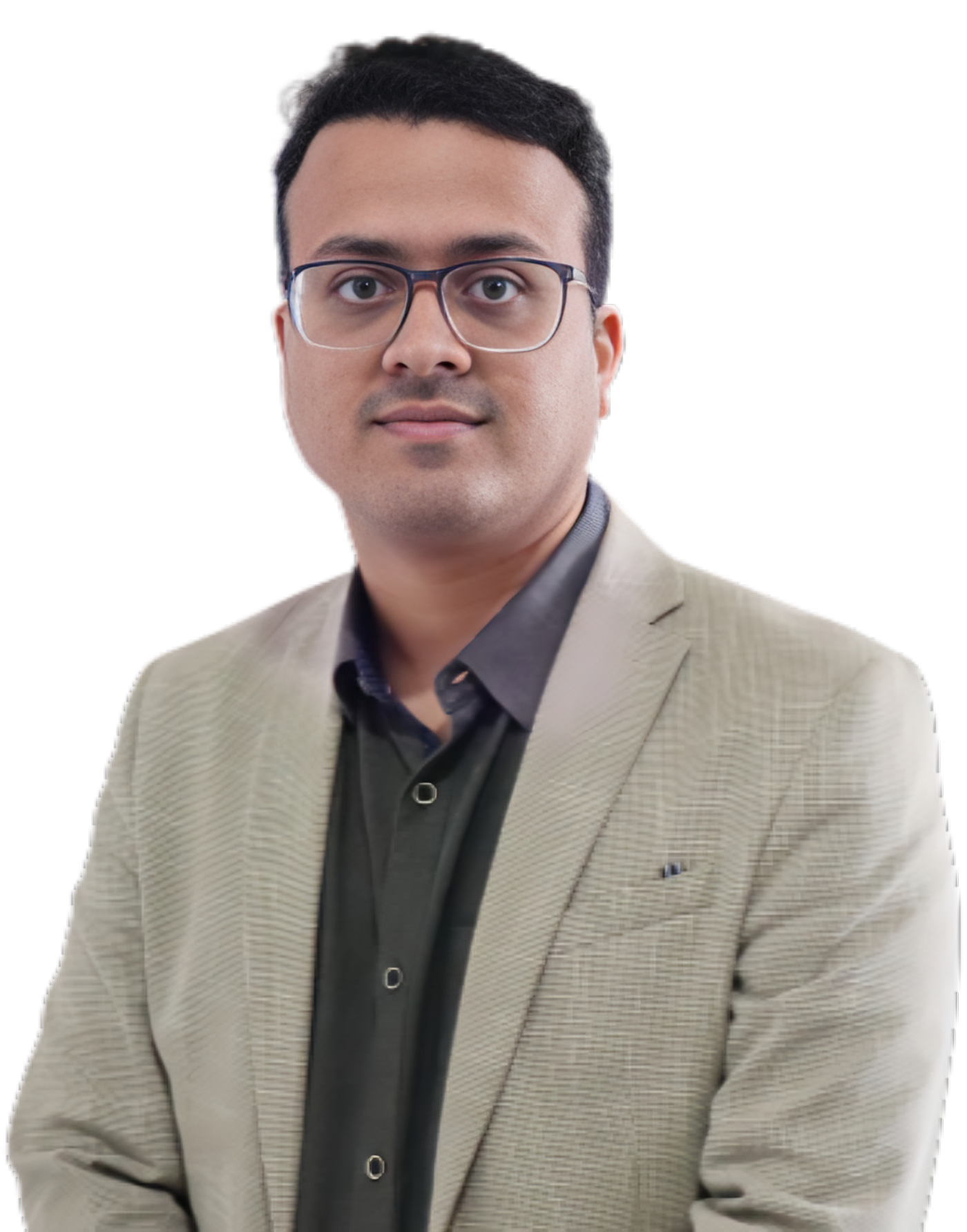Dr. Paresh Bang | Matruchhaya Spine Clinic
Meet Our Doctor
Dr. Paresh Bang
Consultant Spine Surgeon

Spine Doctor In Harda

Spine Doctor
Why Is Medical Clearance Necessary for Spine Surgery?
Spine surgery—even when it’s performed minimally invasively—is a major medical operation that poses potential risks and complications. If you have a comorbidity, such as diabetes, that can increase the risks of the procedure.
Medical clearance is important because if your spine surgeon and PCP/other doctors (s) believe the surgery poses a risk for you, they will work together to adjust aspects of anesthesia and/or surgical approach (before, during, and after surgery) to minimize your risk. This could include changes in your medication regimen before and/or after surgery, starting a weight loss or smoking cessation program before surgery, or ensuring you are up and moving shortly after surgery to reduce respiratory complications.
Types of Spine Doctors
- Orthopedic Spine Surgeons:
- Specialize in treating musculoskeletal conditions, including spinal problems.
- Perform surgeries such as spinal fusions, microdiscectomy, and laminectomy.
- Treat issues like herniated discs, spinal stenosis, scoliosis, and fractures.
- Neurosurgeons:
- Focus on the spine as it relates to the nervous system, including the spinal cord and surrounding nerves.
- Perform surgeries for conditions like herniated discs, tumors, and spinal cord injuries.
- Often handle more complex cases involving nerve compression or neurological issues.
- Pain Management Specialists:
- Treat spine-related pain non-surgically using methods such as epidural steroid injections, nerve blocks, and radiofrequency ablation.
- Often work with patients who experience chronic pain due to conditions like herniated discs or degenerative disc disease.
- Help manage pain to improve quality of life and delay or avoid surgery when possible.
- Physiatrists (Physical Medicine and Rehabilitation Doctors):
- Focus on non-surgical treatments and rehabilitation for spine conditions.
- Help patients recover from spine surgeries and manage chronic spine conditions with physical therapy, exercise, and lifestyle changes.
- Often collaborate with surgeons and pain management specialists to provide comprehensive care.
- Chiropractors:
- Offer spinal adjustments and manipulations to relieve pain and improve function.
- Commonly used for less severe conditions like back pain, sciatica, and misalignments. Chiropractic care should be pursued carefully and in consultation with a medical doctor, especially for more serious conditions.
Common Spine Conditions Treated by Spine Doctors
- Herniated Discs:
- A spinal disc slips out of place, pressing on nearby nerves and causing pain, numbness, or weakness.
- Spinal Stenosis:
- Narrowing of the spinal canal that puts pressure on the spinal cord and nerves, often causing pain, weakness, or numbness in the legs or back.
- Degenerative Disc Disease:
- A condition where the spinal discs wear down over time, leading to chronic pain, stiffness, and sometimes nerve compression.
- Scoliosis:
- Abnormal curvature of the spine, which can be treated with bracing, physical therapy, or surgery in more severe cases.
- Sciatica:
- Pain that radiates along the path of the sciatic nerve, often caused by a herniated disc or bone spur compressing the nerve.
- Spinal Fractures:
- Breaks or cracks in the vertebrae, often due to trauma, osteoporosis, or tumors.
- Spondylolisthesis:
- A condition where one vertebra slips forward over the one below it, causing pain and instability.
- Spinal Tumors:
- Benign or malignant growths that develop within or around the spine, potentially compressing the spinal cord and nerves.
Treatment Options Provided by Spine Doctors
Conservative Treatments:
-Physiotherapy: Strengthening and flexibility exercises for the muscles, and posture correction.
-Medications: Anti-inflammatories (NSAIDs), Muscle relaxants, and Painkillers
-Injections- Epidural steroid injections and nerve blocks. To reduce inflammation and pain in the spinal cord and nerves.
Minimally Invasive Spine Surgery (MISS):
-Microdiscectomy: Removal of only a portion of a herniated disc using a small incision.
-Laminectomy- A portion of the vertebra removed to remove pressure off the spinal cord or nerves.
-Spinal Fusion: Two or more vertebrae are fused together to stabilize the spine and facilitate relief of pain.
Advanced Pain Management:
-Radiofrequency Ablation: The heat applied to the nerve fibers kills them, disabling the pain-transmitting fibers.
-Spinal Cord Stimulation: The implant device sends impulses to the spinal cord to block the pain.
Surgical Interventions:
-Surgery is required for those conditions that do not respond with conservative treatments. These include decompressive surgeries for stenosis or even removal of tumor and corrective surgery for scoliosis.
Choosing a Spine Doctor
- Experience:
- Look for a doctor with significant experience in treating your specific spine condition. Board certification and specialized training in spine care are important factors.
- Treatment Approach:
- Some spine doctors focus on conservative (non-surgical) treatments, while others specialize in surgery. It’s important to choose a doctor whose approach aligns with your treatment preferences.
- Hospital Affiliation:
- Spine doctors who are affiliated with reputable hospitals or spine centers often have access to advanced technology and resources.
- Patient Reviews and Testimonials:
- Reviews from former patients can offer insight into the doctor’s bedside manner, treatment outcomes, and the overall care experience.Contact Us
When to See a Spine Doctor
You should see the spine doctor if you have:
- Persistent back and neck pain lasting more than a few weeks.
- Radiating pain in the legs (sciatica) and arms, numbness, or tingling.
- Weakness in the arms or legs.
- Difficulty walking or performing daily activities.
- Sudden loss of bowel or bladder control (which could indicate a medical emergency). Visit Our Hospital
